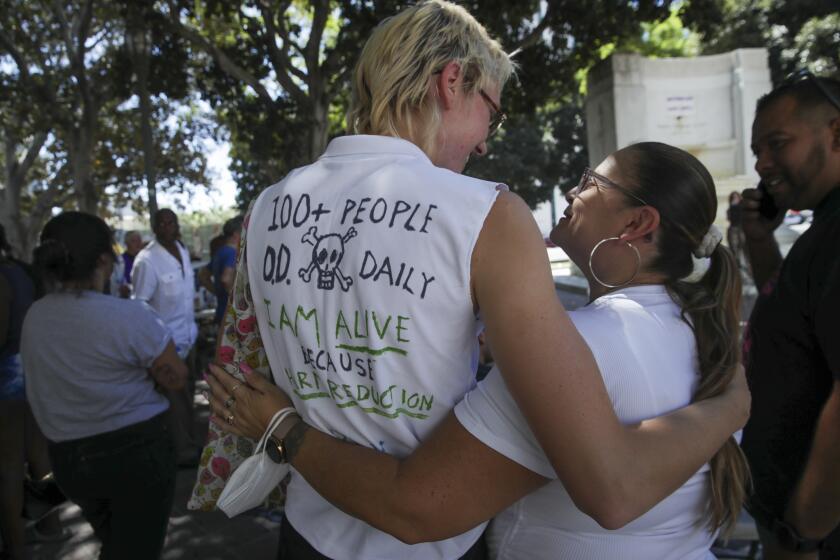Timidity Risks More Bloodshed
Now that the Bush administration has finally reentered Middle East mediation, many analysts’ fear of diplomatic failure is pushing them to urge caution. Raising expectations of a breakthrough in the Middle East is certainly foolish, but too much caution will surely not stop the spiraling violence between Israelis and Palestinians. Any delay in restarting peace talks is far more dangerous than any risk of diplomatic failure, for two reasons. The absence of mutual trust virtually guarantees that violence will beget violence without outside diplomatic intervention. More important, the escalation in fighting threatens to transform a nationalist conflict, which is resolvable, into an ethnic-religious one, which is nearly impossible to resolve. Solutions that may be possible today will not be possible after a few more months of bloodshed.
Start with the events of the last two weeks. Israeli soldiers killed five policemen of the Palestinian Authority who had been in charge, among other things, of containing demonstrations and keeping Hamas activists in check. Although they were Yasser Arafat’s men, the Palestinian leader’s name was not chanted at their funerals. Instead, the name ‘Brigades,’ the military wing of Hamas, filled the air. A few days later, Hamas carried out a horrifying suicide bombing in Netanya that killed four Israeli civilians and wounded scores of others. The militant organization claimed the attack was carried out in part to avenge the killings of the policemen. Within hours, Israeli F-16s attacked Palestinian security buildings in Gaza City and the West Bank, the first such use of the jet fighters on the West Bank since the 1967 war.
As a result, a seemingly helpless Arafat was further weakened at home, support for Hamas increased even more and the ability of both Israel and the Palestinian Authority to deter future attacks was significantly eroded. Whatever the goals of Prime Minister Ariel Sharon’s government--punitive revenge, stopping the intifada or simply bringing Arafat down--the outcome is the same: an erosion of Israel’s ability to deter violence. No person or entity can quickly replace the Palestinian Authority. If the authority collapsed, political fragmentation would likely follow, and Israeli military force is simply not as effective against moving targets.
The current cycle of carnage is tragic enough, but it would worsen significantly without the Palestinian Authority because the character of the conflict would shift from nationalist to ethnic-religious. The breakdown of the Israeli-Palestinian negotiations signaled the beginning of this transformation. Because the conflict was framed as one between two national movements content to find expression in limited states, Palestinians and Israelis could drop their maximum and irreconcilable demands. This approach was reinforced in the Oslo accords in 1993 and helped defuse rising religious forces among Israelis and Palestinians.
But faith in the possibility of ‘two states for two nations’ is eroding. The subjects of the final-status negotiations--the status of Jerusalem and Palestinian refugees--are partly to blame. These issues not only impassioned other Arabs and Muslims but also Israeli Arabs who, during confrontations with Israeli security forces last October, suffered many casualties. The dream of coexistence in a democratic state of equal citizens was shattered for Jews and Arabs alike. Within Israel, mainstream Jewish analysts speak of an ‘Arab problem’ and Arab citizens challenge the Jewishness of Israel.
In the Arab world, the conflict is also being partly reframed, not in relation to Israel or Zionism, but to Jews. This is still the exception, but more common than it was just months ago. It’s not a return to the old ways. Pan-Arabism, when it prevailed, opposed the “Zionist entity,’ not Jews. The dominant political culture differentiated Zionism, as an ideology, from Jews and Jewishness. Pan-Arabists erred in not recognizing Jewish nationalism, but they were not, for the most part, anti-Jewish.
Pan-Arabism gave way to a new vision of a world of states. The rise of the Palestine Liberation Organization in 1974, when it was recognized as ‘the sole legitimate representative of the Palestinian people,’ signified the end of pan-Arab aspirations and the birth of a norm of independent states. The Palestinian issue became the responsibility of the Palestinians themselves. States like Egypt could pursue their own policy toward Israel. The ‘Zionist entity’ of pan-Arabist rhetoric increasingly became the ‘state of Israel.’
The nationalist framework was further bolstered when the Palestinian-Israeli conflict was placed in a regional context. During the last 10 years, hope for resolving the conflict was tied to a vision of a U.S.-backed regional order based on negotiations, stability and prosperity. This order was strong enough to help repel an assault by a powerful Islamist movement following the end of the Cold War. But the collapse of hope for Palestinian-Israeli peace exposed disillusionment with the order across the region, which has yet to see prosperity or an end to the Iraq dilemma. Hostility toward the U.S. is now at its highest level in a decade. The escalation of bloodshed in the Palestinian territories further fuels criticism of the order and solidifies ethnic and religious identities even as it highlights the impotence of Arab states to stop the violence.
The transformation of the character of the Israeli-Palestinian conflict is rapidly taking place, but it is still at its beginning. Stopping it requires bolstering, not eroding, the nationalist framework that enables compromise. In concrete terms, the Palestinian Authority must be preserved. For this to happen, Palestinians must come to grips with the reality of Jewish nationalism, and Israelis must not make territorial claims on the West Bank based on religious narrative. Compromise has to be based on U.N. resolutions and the security concerns of both sides. Above all, the temptation to use overwhelming force must be resisted. Otherwise, the ugliness of religious and ethnic conflict will eliminate any hope for peace.
More to Read
Start your day right
Sign up for Essential California for news, features and recommendations from the L.A. Times and beyond in your inbox six days a week.
You may occasionally receive promotional content from the Los Angeles Times.






